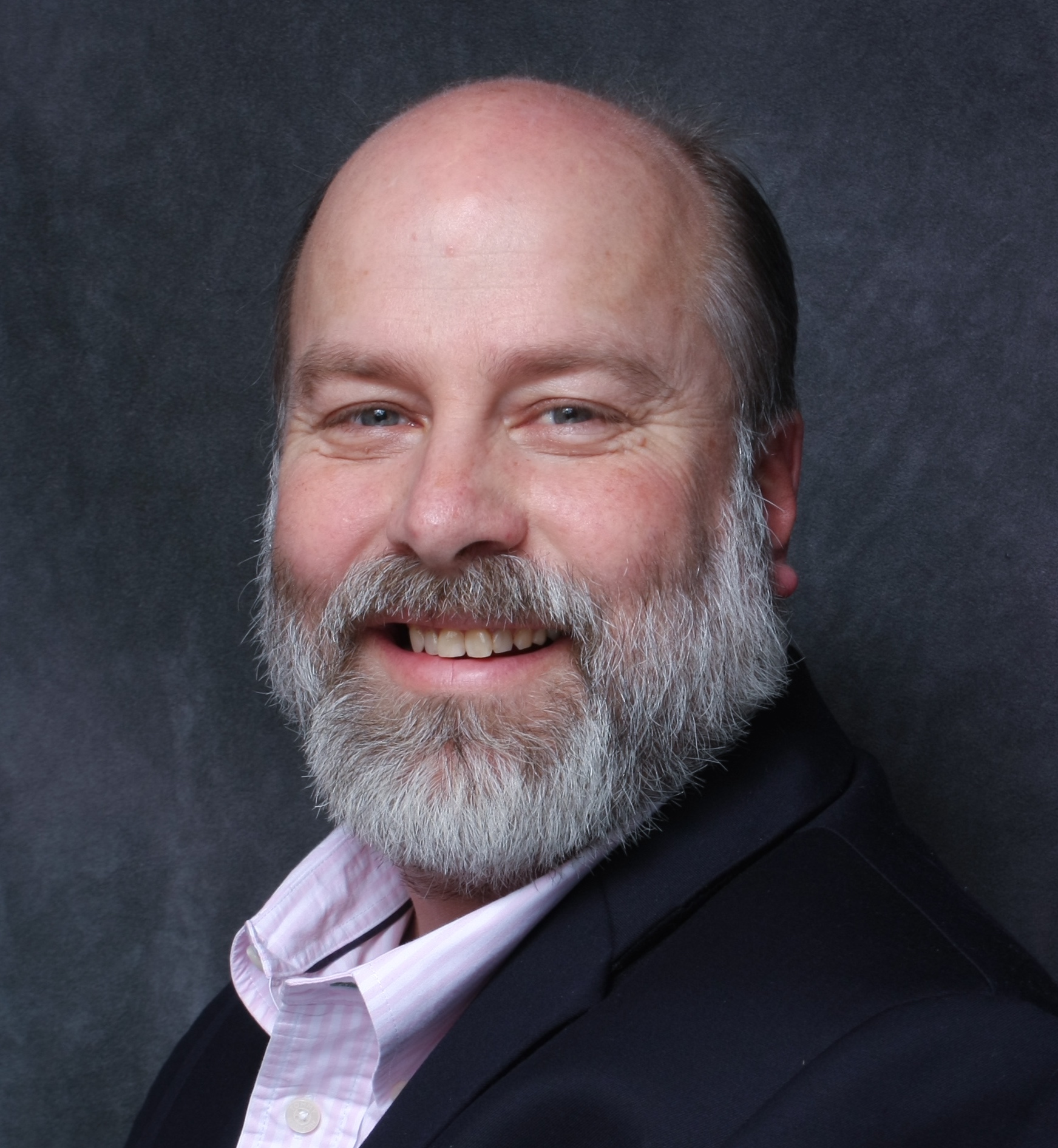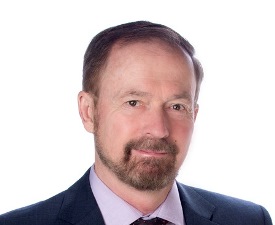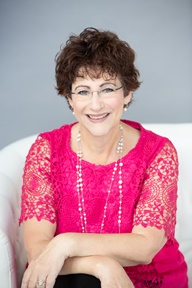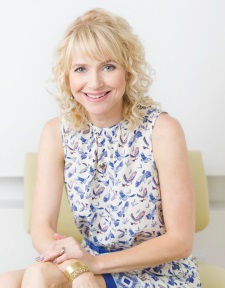Scientific Program
Keynote Session:
Title: COVID-19 and small businesses performance and innovation
Biography:
Dr. Harel is a Senior lecturer at Peres Academic Center. His research focused on Entrepreneurship, Innovation and Small businesses. Dr. Harel serves as a member of board of directors at some leading public Israeli corporations, and bringing with him over two decades of versatile management and business experience as a CEO of several companies in Israel, building and implementing new strategic plans and successfully managing their exit strategy. Dr. Harel holds B.A. in Economics (Cum Laude), M.B.A. (Finance) and M.A. in Philosophy (Cum Laude) from Tel Aviv University, and Ph.D. from Ben-Gurion University in Israel.
Abstract:
This study looked at the impact of the COVID-19 pandemic on the revenues of small businesses operating in industrial sectors, and at the extent to which these businesses changed or adjusted their business activity, or changed the extent to which they utilize open innovation tools and implement innovation promotion processes. The findings show that, despite COVID-19's far-reaching impact in all areas of life, the revenues of most small businesses in industrial sectors were not adversely affected, and most of them did not adjust their business activities or the extent to which they employ open innovation tools and engage in innovation promotion processes. The findings also indicate that small businesses, most of whose revenues derive from subcontracting work are likely to cope better under conditions of economic uncertainty. The findings also show that businesses that are active in international markets succeeded in adapting their activity to the changing demands and various trade restrictions. This study's contribution lies in its focus on small businesses, and its examination of how subcontracting strategy and international operations help them contend with problems and conditions of economic uncertainty and suggest that policymakers should foster programs that assist small businesses with these work strategies.
Title: Digitalization, Blockchain and Finance in the Netherlands: Terms Affecting Financial Professional and Opportunities
Biography:
Professor Dr. ing. Jan Veuger MRE FRICS is in 2019 appointed as professor Blockchain of the School of Finance & Accounting, School of Creative Technology and School of Governance, Law and Urban Development, Hospitality Business School and School of Commerce, School of People and Society & Entrepreneurship of the Saxion University of Applied Sciences, The Netherlands. Therefore he was from 2012-2019 professor Real Estate at the Hanze University of Applied Sciences Groningen, Institute for Business. Jan graduated from the Erasmus University Rotterdam, one of Europe's top business schools for education and in the top three for research. Next to being a professor, Jan is co-promoter of five PhD candidates, Chairman of the Committee of quality certificates (CKV) at Quality Center Social Housing Corporations, member of Supervisory Board of Commissioners for four different organizations (to 2,000 employees) in the area of social housing and elderly care.
Furthermore, member of the supervisory committee for research into 'New virtual money flows and the detection of criminal monies' of Ministry of Justice and Security, Scientific Research and Documentation Centre (WODC), member Editorial Board Journal Modernization, Innovation and Development (MIR), member of the RICS Netherlands & Department Research and Innovation, Fellow of the RICS, President Academic Board FIBREE, Editor Real Estate Quaterly Research (REQR), member of the Academic Council Master Facility & Real Estate Management Saxion UAS, Member of Scientific Editorial Board Conference of Interdisciplinare Research on Real Estate (CIRRE), Board European Real Estate Society (ERES) author of many (e)book(chapters), international scientific and professional publications, syllabi, research reports and has given many guest lectures.
https://www.linkedin.com/in/dr-ing-jan-veuger-mre-frics-11112617/
Abstract:
The exploratory research in 2020 received a lot of attention in trade journals in the Netherlands and in the international context of academic journals, webinars and conferences. This led to this research in 2021, including a reorientation on the structure of the research. Due to the further development of the faculty in 2020 and 2021, the questions from the research were further professionalized, peer reviewed by experts and supplemented. In addition, it is interesting and scientifically important to place the research more in both a national and international perspective, both with regard to professional groups and with regard to other studies, such as that of Controllers Magazine, After various inventorying discussions at the end of 2020, whether or not at the request of the stakeholders, this led to a reorientation on the conducting of the research. At the beginning of 2021, the study was therefore extended almost simultaneously to: (a) all members of the Werkveldcommissie (Werkveldcommissie; WVC) of the Accountancy (AC), Finance, Tax and Advice (FTA, formerly Fiscal Law and Economics) and Finance & Control (FC) programmes of the Academy of Finance, Economics and Management (FEM) at Saxion University of Applied Sciences, (b) all members of the Samenwerkende Register Accountants en Accountants Administratieconsulenten (SRA) a network organization of 375 independent audit firms with 900 branches in the Netherlands, and (c) international sister universities of Saxion University of Applied Sciences.
Title: The Legacy of the Samurai: how conflict between shareholder and stakeholder logics in communities affect ventures
Biography:
Dr. Robert N. Eberhart is the Associate Director of Research at Stanford University’s Graduate School of Business where he studies entrepreneurship and how it shapes society. He is also a visiting professor at Kobe University and a research associate at Columbia University. Professor Eberhart's academic publications include topics such as new theoretical constructs on how institutional change has complex effects on new firms and entrepreneurs. Professor Eberhart won awards for the Responsible Research in Business and Management (2020), Organizations and Management Division Best Theory Paper (2017), Outstanding Scholar Award at SCU (2017, 2018), Best Paper Award at the Western Academy of Management (2016) and Best Paper Proceeding of the 2012 Academy of Management. He served as the Vice-Chairperson of the U.S. Dept. of State and METI’s Japan-US Innovation and Entrepreneurship Council.
Abstract:
In this study, we explore how institutional complexity in communities shapes the strategic orientation of new ventures. Drawing on a dataset of Japanese ventures, we explore how firms exhibit strategic orientations associated with stakeholder versus shareholder logics as exhibited by the pursuit of employment growth versus financial growth. We exploit large urban environments where a Western shareholder logic became dominant over the traditional stakeholder logic. We find that increasing community engagement results in employment gains associated with the underlying stakeholder logic. We further find that these effects are moderated by the existence of a founder-CEO who is from an urban context. Conceptualizing community engagement and founder habitus as different forms of embeddedness, we show that community engagement fosters an employment-focused strategic orientation only when aligned with the logics of the founder’s origin. We discuss the implications of our findings for scholarship at the interface of institutions and entrepreneurship, and how the content of embeddedness shapes the effects of institutions and the strategic orientations of new ventures.
Title: The totally organized entrepreneur is all about outcomes
Biography:
Bruce Lee brings the experience of solid business background from a good cross section of industry: Charter Bank branch management and Alberta Manager for the VISA credit card Division of a Canadian Bank, Senior Marketing Representative for a fully integrated Canadian oil and gas company, Senior Executive Recruiter, establishing a consultant/referral partner office in England, owned and managed a 24 hour a day, 365 days a year retail convenience store and gas bar business. In 2016, he published his book: Why Trust Me? Making Trust Your Competitive Edge.
Abstract:
This is how to fast track careers by a focus on results with and through people. What does it take to stay on track, be fully engaged, motivated and inspired to continue to be the best you can be? What are the best-kept secrets that will fast track your career? How can you make that noticeable difference to stand out and be seen in order to accelerate your success at your office? What matters most to a rewarding career is a great end result of your actions, called outcomes. The key to success for anyone is to actually implement the proven action steps that generate the results you need along with a system for keeping on top of it and measuring your momentum. The second important step to success is that you must feel good about what you do and who you are doing it for. In other words, it is engagement with the company, your product, and people. A key driver to achieve these extraordinary results is based on an attribute called trust which becomes your behavior and your reputation. Here is how to achieve that with confidence, initiative, and commitment. This presentation outlines the eight key areas of focus and provides a link to the self-test tools and e-books to keep the momentum going. To be more successful, enjoy work and life more, get to your goals faster and with less stress, and help others to get there with you, then this session can be your tipping point.
The strategies are:
O: Optimistic: The power of attitude with effective communication
U: Urgency: Passion + Enthusiasm + Action = Results – how to act with urgency
T: Trust: What it takes to build and sustain your reputation and your competitive advantage
C: Conflict Resolution: Winning over difficult people, eliminate gossip, harassment, stress
O: Organized Goals & Coaching: Creating the road map for the next 5 + years of your career
M: Memory: Steps to the actual implementation of the core training ideas
E: Excellence: Traits and self-tests to measure your personality, reputation, and performance
S: Success by ‘S.A.M.’ and Select Supervision Skills: How to inspire, engage, support, motivate
Oral Session 1:
- Entrepreneurship and Management
Title: How to drive your business from a humble setup to a multi-million dollar company
Biography:
Claudio Sorrentino is an entrepreneur, investor, mentor, and executive with over 20 years of business experience in the retail, medical, hospitality, and marketing industries. Being a serial entrepreneur, he is well experienced in establishing new businesses right from scratch and turning them into a huge success. His proven ability to quickly analyze key business drivers and develop strategies to grow the bottom-line are what he considers as his strongest points. Being an all-rounder, he possesses a strong knowledge of all business aspects especially, entrepreneurship, business development, finance, and operations. He left the nation’s largest MedSpa to found Body Details and become its Chairman and CEO. Body Details is currently the largest provider of cosmetic laser services in Southeast Florida and is regarded as one of the nation's fastest-growing cosmetic laser service provider recognized by Inc 5000. He possesses a strong knowledge of all skin and body treatments, including skin rejuvenation, tattoo and hair removal.
Abstract:
‘Nothing worth having is ever easy.’ So rightly said! However, my extended version of this quote says, ‘Nothing worth having is ever easy and you make it even more difficult by plunging yourself into the wide realm of entrepreneurship’. So, why do people do it? If you ask me, you just can’t help it when your mind is full of ideas and you feel like a born entrepreneur. You are so motivated to chase your dreams that you accept nothing but success. The problems that you come across during the process are part of the package and are surely not easy to surpass but with the right attitude, you not only resolve them but you also learn to capitalize on them. In my session, I will share my story. No lies, no tales but purely my account of events. Starting from scratch to building an empire that I own today, I will take you along on this roller coaster ride. My aim is to share my experience to motivate and help. There are a lot of things that I wish I knew earlier but for you, I am ready to share all that I know and have learned from my experience. Let’s jump in this bandwagon together and come out as glorious winners!
Title: Mastering emotional intelligence: How to harness the power of effective communication to get the results you want
Biography:
Celine Williams is a business strategist, executive coach and expert in leadership development for the 21st century workplace. She is a graduate of the University of Toronto, where she is still actively involved as a mentor at The Hatchery, and Coach U, one of the world’s preeminent coaching schools. She has over 15 years’ experience working with fast-growing organizations, small businesses, and entrepreneurs, and is a trusted advisor to Fortune 500 companies. She is sought after for her expertise in accelerating performance, designing culture, improving emotional intelligence, and facilitating effective communication.
Abstract:
As humans, our ability to communicate enables our ability to connect with each other. There is no single skill that can make or break a person’s success in life and in business quite like that of effective communication-to put it simply communication is the most powerful tool we have available to us when we know how to use it. Mastering the concepts of Emotional Intelligence is the foundation you need as a business owner or leader if you want to start seeing the kind of results you deserve. Celine Williams has been training entrepreneurs and businesses around the world in Emotional Intelligence for the past 6 years. During that time she realized that the traditional model of Emotional Intelligence just isn’t enough anymore. Because of the added challenges inherent in navigating a global economy and a remote workforce, there are nuances that are missing in traditional discussions of Emotional Intelligence. In this presentation, she will review her model of Remotional Intelligence: Emotional Intelligence for a Remote World. You will walk away understanding the 4 key areas we will need to master to thrive in a remote world and how you can effectively use them to improve your communication. You will learn specific tactics and tricks to improving your ability to communicate and as a result, the impact you have on those around you. The key to success inside any business comes down to one thing: people. The most successful entrepreneurs, leaders, and business owners know that they must continuously communicate effectively with the people around them if they want to continue to be successful. If you want to build and grow your business, it’s as straightforward as this, you must master the art of emotional intelligence so you can communicate effectively and have the impact and outcomes you want.
Title: Pay less taxes and bank fees. Put more money in your pocket
Biography:
Craig Dunkerley is an international #1 best-selling author and speaker. As CEO and founder of Blackthorn Group, he has made it his mission to help as many Canadians as possible become millionaires. He is a financial expert and his firm focuses on reducing taxes of people, entrepreneurs, small business owners, and corporations. He is a true Tax and Investment Guru and will change your mind set on how you look at expenses and teach you how to write off almost everything you spend, just like the wealthy do. Start putting large refunds in your pocket year after year. It’s how much you ‘keep’ that counts! From there he will show you how to take this free money, the money you were giving away and make it work for you, not the bank, not the government, for you.
Abstract:
The presentation provides real-life stories, examples, and anecdotes of the financial challenges of most Canadians and how some simple shifts can overcome them and create positive change that not only brings more wealth but creates financial freedom. Do not expect typical financial discussions. Expect out of the box thinking and strategies that your bank will not share with you, legitimate and legal strategies to put tax dollars back in your pocket and get your money working for you. See how easy it is to put more money in your pocket and generate generational wealth. After choosing at the age of 32 to leave the corporate world and successful career behind, Craig turned his part-time accounting business into a full-time firm. As an entrepreneur since he was 12-years old, he was now ready to do it full time and share his knowledge with others, taking control of his life for himself and his family. Purchasing his first real estate rental property at 23 years old and building it into a real estate empire for himself and others, he will show you the power of duplication. Looking at the minimalist results so many were getting in their RRSPs, in 2001 he started teaching how self-directing low fee funds could keep 60 to 70% of the gains in your account as opposed to your banks’ profits. He will share this information with you. He was fortunate as a child having his father share his knowledge of money and numbers with him. He knew everything from an early age for the finances of the family and the household. As an analytic, he started to challenge many of the financial numbers and results he saw early on and built strategies to improve them. This has led to further development of strategies for financial freedom and helping people get connected with their money and creating personal wealth for them. With stories interwoven, the presentation will provide 3 strategies of how to live a financially free lifestyle. The audience will gain insights into strategies to write off almost everything they spend to generate large tax refunds, how this “free money” (Money you were letting slip through your fingertips) can build wealth. How a couple of very simple changes to their investments can add 60 to 70% more to their current gains and how easy it is to take control of your money, get connected with it and make it work harder for you. It’s what you do not know that’s hurting you and with a little bit of connection, everything can change.
Title: Descriptive analysis of consumer perception on online grocery shopping stores in Indian consumer markets
Biography:
Riya Gandhi is an undergraduate third-year student at Pandit Deendayal Petroleum University (PDPU) India. Her bachelor degree is on Business Administration and Liberal Studies. She is majoring in Marketing and Minoring in Economics. She has done internships at Ahmedabad Municipal Corporation (AMC), Intas Pharmaceuticals (Finance & Accounts Intern), Wagh Bakri Tea Group (Supply Chain Intern), Visamo Kids Foundation (Student Mentor). She has been part of various University clubs like the Photography Club, Fashion Club and Events Club. She is also having her own startup business with her sister named Voyage Mate which is a Travel & Tourism Company.
Abstract:
In the last three decades, the Indian economy has observed considerable growth in almost all sectors. The information technology revolution has changed the market structure and business dynamics. Today, supply chains are more visible and customer-centric. The consumer, especially in urban area, have multiple market access both online and offline. The Indian markets are now flourished with national and international brands. For many years, offline markets were used to serve consumers in India. The structure was traditional and price discrimination has been observed in almost all markets. The online platform is comparatively in the infant stage in India. At present, very few Indian companies are using the online platform in this Business. These people primarily aim to understand consumer perception of online grocery portals. It also attains to understand corporate strategies pertaining to supply chain & logistics and sales & promotion. The findings highlight strategies pertaining to supply chain reforms, social media marketing, and integrated marketing communication.
Keynote Session:
Title: How to be your own BS detector and stop: Downplaying your worth
Biography:
Sometimes we can be our own worst enemies, right? All the doubts, the anxious wondering whether we’re doing a good enough job, always hoping no one finds out just how uncertain or insufficient we are. Hello, are we done yet?! It’s time to stop the BS! Learn the secrets to shedding the self-sabotaging thoughts and habits, unleash your inner powerhouse! This fun, empowering and highly interactive presentation includes (a) how to get past imposter syndrome or thinking you have to be perfect (b) the surprising culprit who’s been stealing your confidence (c) and what is really taken to get paid what you’re truly worth. Janet Zaretsky, the BS-to-Brilliance master, has a gift for having you unapologetically and confidently express yourself and succeed!
Abstract:
Janet Zaretsky is a master professional coach, author, and speaker that helps people unleash their brilliance, confidence, and visibility in the world. She has worked with over 32,000 people in the past 22+ years. She is a powerful advocate for ending the gender gap, both in pay and influence. Her work with women has led her to be a frequent contributor to Forbes and the author of “Where’d My Confidence Go and How Do I Get It Back?”. Known as the BS-to-Brilliance master, has a gift for having you unapologetically and confidently express yourself, and succeed! – as a unique and powerful professional, you are. She is a TEDX and Keynote Speaker, a corporate trainer and expert in communication and leadership, an International Coach Federation member, Enhanced Conversational Intelligence Coach, Certified in Behavioral Style Instruments, a graduate of Coach U, former senior program leader for Landmark Worldwide.
Title: Branding mistakes and how to cure them
Biography:
Laura Beauparlant is an international keynote speaker, an expert on branding and design and the author of Brand Chemistry. As the Founder and Creative Director of Lab Creative, her mission is to help ambitious entrepreneurs create strong, memorable brands that consistently attract their ideal clients. For over 15 years, she has helped countless small business owners and entrepreneurs gain confidence and grow their businesses through unforgettable branding.
Abstract:
You are really good at what you do. But it takes so much more than just an idea or your incredible skills to start and run a business. Laura shares her experience working with successful small businesses over the last fifteen years to help entrepreneurs fast-track their own success. You will learn what branding is and why it matters to your small business, as well as 5 of the most common branding mistakes that are costing you money, and how to avoid them to build a strong, memorable business that attracts the right clients.
Title: The dark side of Entrepreneurial Finance: What has changed with COVID?
Biography:
Dr. Arvind Ashta is professor of Finance. He is a member of research associations (RRI, CERMi, PRME Anti-poverty Working Group, among others) and has been associated with the European Microfinance Platform. He has over eighty publications in international journals. He has edited "Advanced Technologies for Microfinance", co-edited "MIS in Microfinance" and "Slow Management" and authored "Microfinance: Battling a Wicked Problem" and “A Realistic Theory of Social Entrepreneurship: A Life Cycle Analysis of Micro-Finance”. He is a member of a club of micro-investors. The essential of his research interests hovers around microfinance, social entrepreneurship and fintech.
Abstract:
The call for papers of a special issue in Entreprendre & Innover on the dark side of Entrepreneurial Finance, in the first half of 2019, indicated that financiers were gaining too much importance and exerting too much control over entrepreneurs. The call talked about the unintended consequences, where Finance eventually kills the entrepreneurial spirit instead of creating it and nourishing it. There is extensive literature in microfinance devoted to the harmful financing of microentrepreneurs (Bateman, 2010, Sinclair, 2012). Our interview with Nobel Laureate Muhamad Yunus showed that he focused on the difficulties of financing social businesses (Toutain and Ashta, 2021 forthcoming). He considers that dividends should not be paid and that this internal financing would allow the social business to grow faster, in a healthy way. An obsession with growth, of course, can have dark consequences. 2021 has been marked by a problem of supply chain finance being used to finance growth, as demonstrated by the Greensill Capital bankruptcy (Ashta, 2021 forthcoming-b). Ultimately using short-term finance for long-term needs can result in dire consequences for both the financer and the entrepreneur. My interview with Gilda E. Darlas showed that she was focusing on the dark side of greed which makes people evil, and she wanted to focus on the right kind of education which could make people more altruistic (Ashta, 2021 forthcoming-a). She hopes this would reduce concentrations of wealth by financial institutions. Covid has led to major changes such as increased poverty levels, a decoupling of the financial economy from the real economy, and the growth of zombie firms. There is little certainty on where we will go next: what part of the old economy will be revived, and what part of the new will be retained? This poses major challenges for entrepreneurship at the country level, firm level, and individual level. The talk will reflect on the need for originality in policies, strategies and research.
Title: Sustainable women entrepreneurship for the environmental growth: COVID 19
Biography:
Dr. Sucheta Agarwal is working as an Associate Professor in Institute of Business Management, GLA University Mathura, India. Dr Agarwal did her PhD in women entrepreneurship from Department of Management Studies, Indian Institute of Technology, Roorkee, India. Her areas of interest are education, entrepreneurship, human resource management and organizational behaviour. She has several publications and has contributed several research papers to ABDC ranked journals of international and national repute. Her recent publications were in Journal of Cleaner Production, International Journal of Social Economics, Journal of Asia Business Studies, to name a few. She has also presented many papers in national and international conferences in India and outside India. She is recipient of “Young Research Scholarship Award” at AIT Bangkok by GRDS and “Young Woman Management Researcher Award” by AIMS International. She is also having an “Outstanding Reviewer Award” awarded by Elsevier in her credit.
Abstract:
Women entrepreneurship is emerged as a significant participant in male dominated entrepreneurship field. Nowadays with the entrepreneurial mindset, women develop the innovative based entrepreneurship model to energize the sustainable development. The question arises, “What are the factors and how these factors inspire the women entrepreneurs to think about the development of environmental sustainability through the entrepreneurial activities in during COVID 19”. The sustainability measures facilitate the entrepreneurial outcomes with development of new entrepreneurship models in such a way that it is profitable now and in the foreseeable future for the people and environment. The Sustainable Development Goals (SDGs), or Global Goals, are a set of 17 interrelated global goals intended at creating a "blueprint for a better and more sustainable future for all." The United Nations General Assembly founded the SDGs in 2015, with the aim of accomplishing them by 2030. Women's entrepreneurship may help achieve the SDGs by producing sustainable products and services and come up with new solutions to social and environmental issues through an entrepreneurial lens. Despite its skepticism and modesty, the literature creates aspirations for a better development model in which women entrepreneurs play a substantial role in resolving social and environmental issues. This study used qualitative research and collected the data from women entrepreneurs of Uttar Pradesh region in India those were involved in innovative based entrepreneurial activities and focuses on development of holistic framework for the sustainable environmental growth during COVID 19. The factors such as positive approach, entrepreneurial resilience, spirit of doing different, serving others, problem solving attitude, work life balance, are the few which inspires them to discover and utilize the opportunities for the sustainable environmental growth. The findings of the study open the new direction to the academicians, policymakers and researchers to work on the development of the entrepreneurial mindset of women as more women entrepreneurs will benefit the business world, family, society, nation and environment.
Oral Session 1:
- Start-ups and real Global Entrepreneurship
Title: Positioning your enterprise and business for growth and sustainability
Biography:
Oladapo Akinloye presents two decades cognate experience in managing people, sales, operations and projects for the top of range multinational organizations. He is currently CEO, Emerald Zone, Nigeria-A Business Advisory, Turnkey Sales Interventions & Solutions, Full Range Human Resources and Projects Management Firm. We support Business Owners to grow capability in managing their enterprise with a focus on Organization, People, Process and Technology. He sits on the Governing Council of the Lagos Business School and the Netherlands Business School Alumni Associations respectively and a Facilitator/Examiner for various local and international professional bodies.
Abstract:
Do you have a business roadmap? The entrepreneurship journey is one that takes the owner through a lot of hills and thrills. It takes you across a lot of mucky waters which if not anticipated and deftly maneuvered, may lead to frustration and eventual jettison of the journey. One of the full proof tools that help to anchor business owners and end entrepreneurs through this vagaries, is having a clear roadmap. Your business plan is not enough to anchor your business execution. Most of the time you need a roadmap document especially if your business is in a state of flux with changing market conditions, changing supply model, startup challenges, etc. To avoid pursuing many windy paths or dead ends in 2019, it is always good to have a roadmap. That roadmap encapsulates the path to the vision with pillars and enablers which team members can understand. Business leaders and practitioners need a framework for guiding the mobilization of an organization around its strategic plan. Such a roadmap enables leaders and members to clearly understand each element for rolling out a strategy. It details what decisions need to be made, who needs to make them and when. A roadmap enables everyone in the business to clearly understand each action and what decisions need to be made, who needs to make them and when such decisions should be executed.
Title: Creativity and entrepreneurship: From social services to success
Biography:
Jessica Cassick is a Ph.D. student at the University of the Virgin Islands and pursues a doctorate in Creative Leadership for Innovation and Change. She is the CEO of Imagine We, LLC, a publishing company. She is Co-Founder of Synergy Services Alliance, a soon to be nonprofit that consults and teaches survivors of domestic violence to create a positive change movement to graduate from the welfare system, in pursuit of financial independence, and success. She has published 10 children’s books, with 3 more on the way and will launch of 2 businesses in 2019. She specializes in entrepreneurship, communication, creativity, domestic violence, and is pursuing a more elaborate knowledge of success for her dissertation.
Abstract:
Examine creativity through the lens of entrepreneurship. Like creativity, entrepreneurship can have many definitions, but in one reading, Jeffrey Nytch (2016) described it as a mindset. Nytch explains this mindset as steps in a process. First, you will recognize the opportunity in front of you, then focus on the issue, remain flexible and adaptable, and identify resources. This to me, appeared to be similar to creative problem solving. When creativity collides with entrepreneurship, learning to balance in opposition to struggles, as well as always finding new and exciting ways to redevelop and restructure a business to stay ahead of the curve is pivotal to having a business. This can also be said about creativity. Creativity is omnipresent. “Each of us does have an Aladdin’s lamp, and if we rub it hard enough, it can light our way to better living, just as that same lamp lit up the march of civilization”(Osborn, 1952b, p. 8). Creativity can be harnessed and used as a missile or cannon during a war. The potential alone to create opportunity is infinite. Where their potential there needs to exist an action and then we have changed. With the unlimited change that needs to happen, every single individual has a part they must be willing to play to make an impact. Through entrepreneurship, it can take a domestic violence victim or survivor from poverty to plenty, from social services to success, and from minimum wage to Chief Executive Officer
Title: The Effect of Training on Employees Performance: in Selected Commercial Bank of Ethiopia in Dawro Zone
Biography:
Will update soon
Abstract:
The purpose of this study was to investigate the effects of training on employee performance of selected Commercial Bank of Ethiopia in Dawro Zone. The main objective of training is to improve employee knowledge and the skills for their better performance. The performance is measured in terms of the improvement in motivation, efficiency and the Employee Job Satisfaction. Both primary and secondary data sources were used. Structured questionnaire was designed to collect the information from the respondents. The collected data were analyzed using descriptive statistics and multiple regressions. Regarding the frequency of training provided, many respondents, i.e., 139 out of 160 respondents avowed that they took training for one or two times. This may retard the effectiveness and motivation of employees of the organization. Regarding the methods implemented to deliver trainings, the company mostly used induction/orientation in which 25 percent (40 out of 160 respondents) affirmed that they took trainings through lecture. The findings on the Effect of Training on Employee Performance are generally significant.
Keywords: Dawro Zone, Employee performance, Satisfaction, Training
Title: Walking 2750 km towards an entrepreneurial mindset
Biography:
Nico de Klerk is a social entrepreneur, public speaker, the founder, and CEO of Street Biz Foundation (non-profit company). Street Biz Foundation’s aim is to innovatively address poverty, unemployment, and inequality using technology, social networking, and research. Our long- term objective is to establish an online business school for the unemployed and school-leaving youth. In honor of Nelson Mandela, and to raise awareness for Street Biz, he launched the “Long Walk Project” in 2018. He walked across South Africa covering 2,750km (1,708miles), slept in local townships, and met 25,000 people in 104 communities. He was the National and Southern African Coordinator for SAGE (a global youth entrepreneurship NGO) and guest speaker at the World Championships in Russia in 2014. He is currently authoring a book entitled “Pilgrimage of the Mind”.
Abstract:
I come from the country of Elon Musk, Mark Shuttle worth, and Trevor Noah! I come from the country of Nelson Mandela. We do like to share with the world what we are doing, trying to do, or what we are striving for. A country of experiments, especially in the social context, of victories, and many failures. You’ll need a special insight into the effect and implications of a mindset often formed by a culture of dependency. The Long Walk Project was “a gift to the mindset of all South Africans” and I trust it can also be a gift to the GEC 2019. My work in South Africa has many facets. What conclusions can I draw from all of my experiences and research? In summary: As South Africans, we need to reboot our entire approach towards entrepreneurial skills development.
1. Why is this reboot necessary?
2. How will we reboot our mindset?
3. How is Street Biz planning for the future?

















